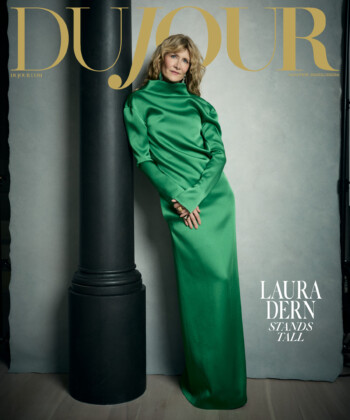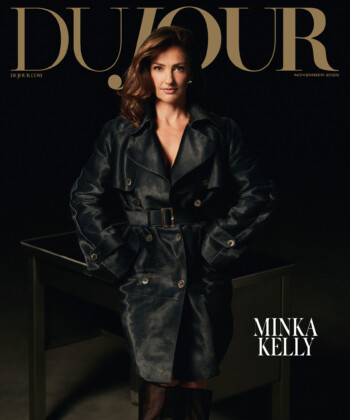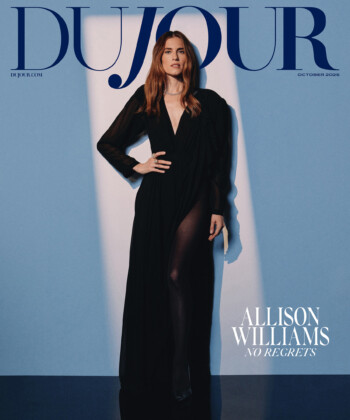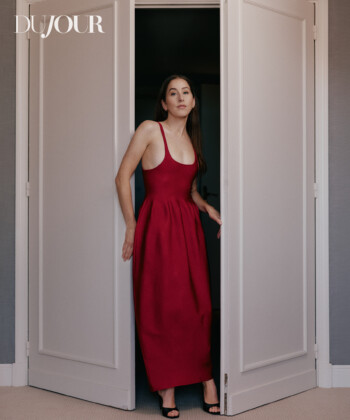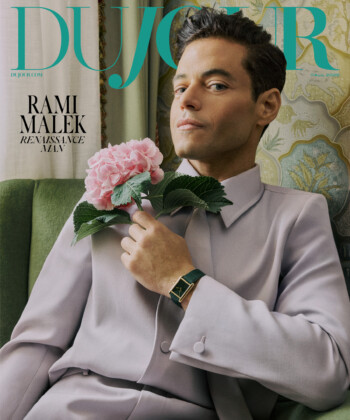When crime gets as much TV coverage as Bonnie & Clyde, it’s often thanks to blood-soaked segments of breaking news. Come December 8, however, the extra eyes will come thanks to the film, an enthralling retelling of that most infamous criminal romance, being broadcast over three networks: Lifetime, A&E and History.
This time around Bonnie & Clyde, a two-night event, stars Holliday Grainger (formerly of The Borgias) and Emile Hirsch as the titular delinquents, and it makes clear that while the 1967 Warren Beatty-Faye Dunaway film version of the story might loom large, there’s definitely room for an update. Hirsch got on the phone with DuJour to talk about Clyde, crime and his own outlaw streak.
Bonnie and Clyde were active in the 1930s. What makes them an appealing topic for a movie today?
Television has hit this point where people love a lot of what’s being made—there’s a sense of excitement about what’s happening on TV. I feel like History Channel, A&E and Lifetime wanted a historical story with mass appeal. And I think that Bonnie and Clyde are these really iconic names that everybody knows, but very few people know the truth behind who they were.
You know, Bonnie and Clyde, in a certain sense, were like the first reality TV stars. The public was living this crazy saga through the newspapers and radio, and they were just getting more and more obsessed with it and it was like kind of perverse admiration and following of celebrity culture which is kind of still relevant to this day.
There’s also something to be said for a story about how people will go to these lengths for one another. In an age where it’s acceptable for people to break up over text message, to be willing to go into a life of crime with someone seems sort of grand.
Younger generations of kids and young adults will see this and they’ll be wowed by the sort of a bond that you don’t typically see. In a lot of these romance movies that take place in contemporary times, you don’t see that commitment.
You didn’t watch the Warren Beatty film prior to playing Clyde. Your portrayals are quite different.
I was surprised because all the historical stuff I read was about how this guy got raped in jail and he was beaten—there were these awful experiences that happened to him which kind of scared him. So I played Clyde like a stoic, tough man of few words. I felt like that was what he would have been like if all these things had happened to him. Then I saw the Beatty version and they had a different take on it. In their take, Bonnie and Clyde were a lot more happy go lucky. There wasn’t this cloud of darkness that I felt was there when I learned about him.
What did you like about Clyde?
Damaged as he was, it was refreshing to get to be in this love story with Bonnie—and Holliday was such a great actress. As dark as he was, those are sometimes sort of interesting parts to play: The guy had no fear, he was constantly putting himself in situations where he could be killed. He was a little guy but sort of a lion.
Do you see any of yourself in Clyde?
I don’t think my outlaw streak could be comparable to Clyde Barrow’s.
If you were to be able to pull off a heist of your own, what would it be?
A heist? I don’t know. What has the biggest yield?
Art thievery seems to have more panache than other crimes.
I feel like art thievery isn’t judged as harshly because the criminals appreciate art. They have good taste.
Bonnie & Clyde premieres December 8 and 9; click here for showtime info.
MORE:
A Cosmopolitan Wardrobe for Bonnie & Clyde
Mad Men Set Secrets: Bringing 1964 to Life
Liberace Extravaganza! Our Favorite Over-the-Top Outfits

































